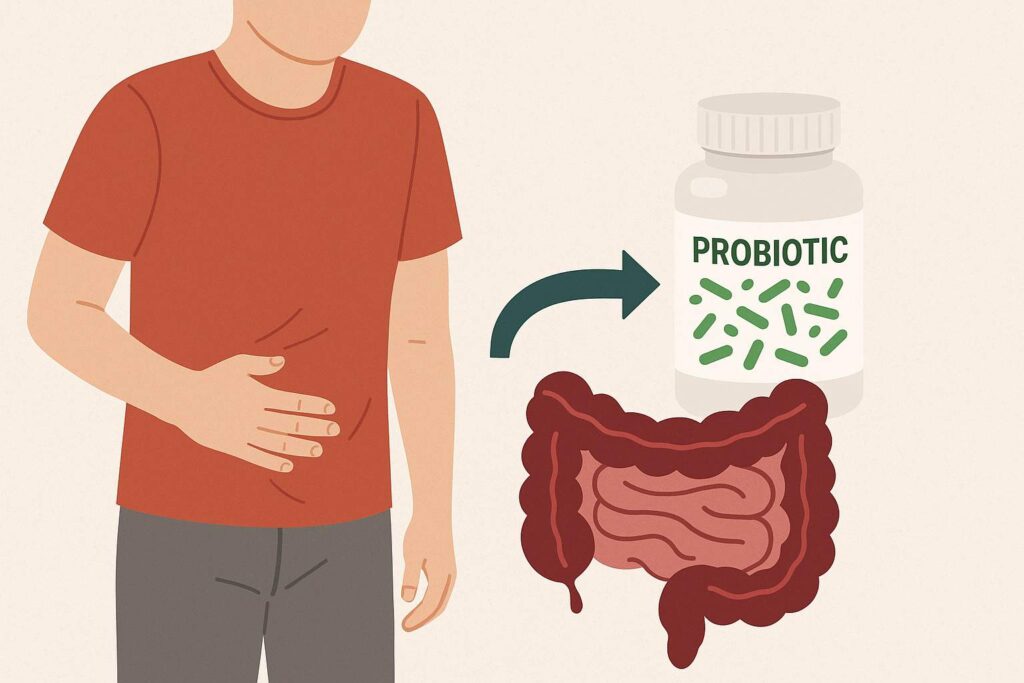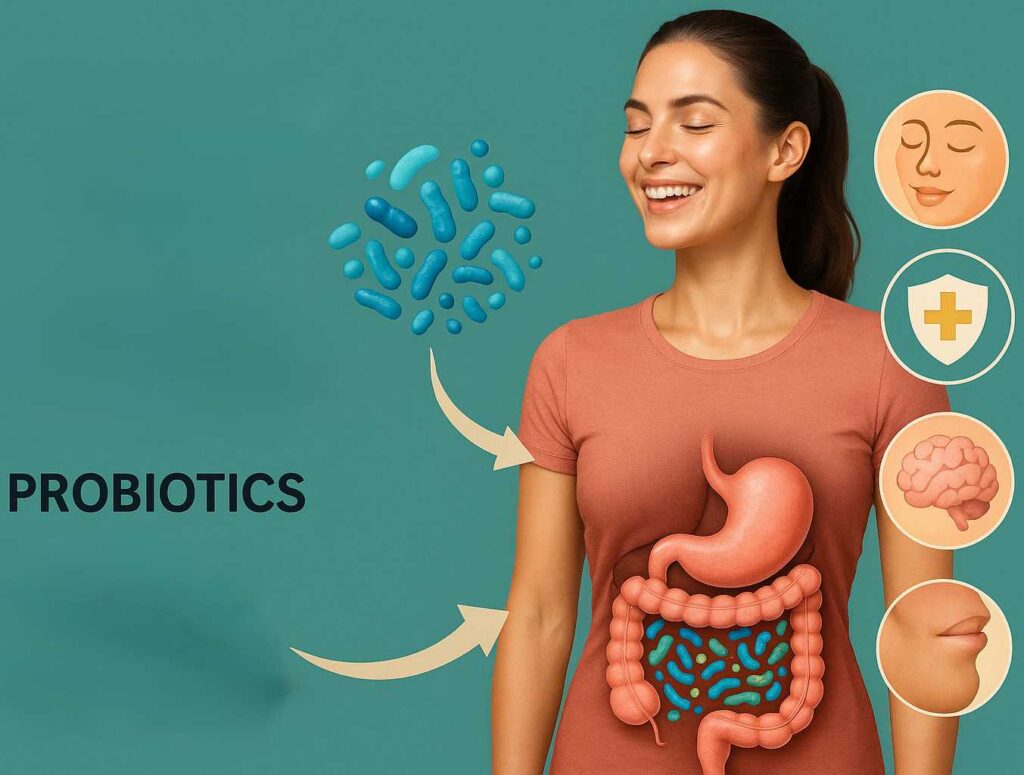Yes, probiotics intake can sometimes cause diarrhea at first. It could happen, particularly when you start taking them or higher doses. This may occur due to different reasons like shift in gut microbiome balance, immune response, over colonization of some probiotic strains, excessive metabolites production, strain-specific effects, high doses, gut-barrier function disturbance, and individual sensitivity.
Shift in Gut Microbiota Balance
When you start taking probiotics, the number of bacteria increases in your gut. Your gut may need some time to adjust to gut microbiota balance. However, in some cases, some probiotics can overcolonize the gut, disturbing normal gut microbiota balance.
This change in the balance of the gut ecosystem potentially causes diarrhea. For example, some probiotic genera, such as Lactobacillus, Bifidobacterium, and Saccharomyces, may dominate the gut microbiota, overcome beneficial indigenous bacteria, and lead to dysbiosis.
Excessive Metabolite Production
If you consume a carbohydrate-rich or high-sugar diet, it is sometimes poorly digested and absorbed.
It serves as a substrate for some Lactobacillus and Bifidobacterium probiotic strains to start bacterial fermentation.
It results in excessive production of metabolites such as hydrogen and methane gas. It can lead to bloating, abdominal pain, and diarrhea.
Immune Response
Probiotics can modulate the immune system, and taking probiotics by some individuals with compromised immune systems can induce inflammation and diarrhea.
Some probiotic strains like Lactobacillus rhamnosus GG, Lactobacillus helveticus, and Lactobacillus casei induced the production of proinflammatory cytokines, which can indirectly worsen gut inflammation in some individuals and result in diarrhea.
Poor Tolerance and Sensitivity
Individual tolerance and sensitivity to probiotics can vary greatly.
Some people may be more sensitive to certain probiotic strains that may cause diarrhea.
Strain-Specific Effects
The effects of probiotics are highly strain-specific, and not all probiotic strains are beneficial for every individual.
Some strains may be more likely to induce diarrhea in certain individuals due to their specific metabolic activities or interactions with the host’s gut microbiota.
For example, Saccharomyces boulardii, a yeast probiotic, has been shown to prevent diarrhea in some cases, but other strains may have the opposite effect in specific individuals.
Use of High Doses
Using a high probiotic dose at the start can also potentially cause diarrhea for a short period. High doses of a specific probiotic may lead to sudden overgrowth of the particular probiotic population in the gut, which can disrupt gut microbiota balance and cause diarrhea.
This may mainly occur in individuals new to probiotic use or with a history of gastrointestinal sensitivity. However, scientifically, no solid evidence is available to support this reason.
Frequently Asked Questions (FAQs)
Should I stop taking probiotics if I have persistent diarrhea?
If you experience persistent or severe side effects from probiotics, it’s important to consult with a healthcare provider to check if they are right for you.
Should I start a probiotic with a low dose or a high dose?
It is good to start probiotic intake at a low dose, especially when you are new to probiotics. Different strains of probiotics have different effects on the gut, so it’s important to choose a strain that is appropriate for your individual needs and health condition.
Why is my probiotic giving me diarrhea?
Imagine your gut as a balanced ecosystem. Adding probiotics is like introducing a new species to that environment. The current inhabitants (your existing microflora) may resist the change, causing a brief period of inflammation or overactivity as everything settles.
The diarrhea is often a sign that your body is flushing out accumulated toxins or unnecessary metabolites and making room for healthier gut microflora. It’s uncomfortable, but in many cases, it’s a positive sign that your body is recalibrating.
Should I stop taking probiotics if I have diarrhea?
It’s generally not necessary to stop probiotics entirely if you’re experiencing diarrhea. Still, it’s important to consider the type and duration of your diarrhea and your individual response to probiotics. Some probiotic species, like Saccharomyces boulardii and Lactobacillus casei, are even specifically recommended for treating diarrhea.
What are some common symptoms of diarrhea caused by probiotics?
At the start, probiotic intake may cause
- Loose stools
- Gas or bloating
- Cramping
- Increased bowel movement frequency
These symptoms are typically short-lived and resolve as your body adjusts.
Can probiotics make diarrhea worse?
No, consistent intake of probiotics can improve overall gut health and reduce digestive issues like diarrhea. Different meta-analyses, including one based on 16 trials, have confirmed probiotic intake’s positive effect in alleviating diarrhea.
Should I stop my probiotics if I have diarrhea?
Not really, as Probiotics can be useful in acute infectious diarrhea, as the natural gut flora is disrupted after an infection, and, in otherwise healthy individuals, the probiotics can be used to repopulate the colon with healthy bacteria. A meta-analysis of 15 research studies found that combining multi-strain probiotics can control antibiotic-associated diarrhea.
How do I know which probiotic is right for me?
Probiotics may not be suitable for everyone, especially individuals with certain health conditions or other medications. It’s always good to ask the doctor for a suggestion. It is also important to check the composition of probiotic supplements.



